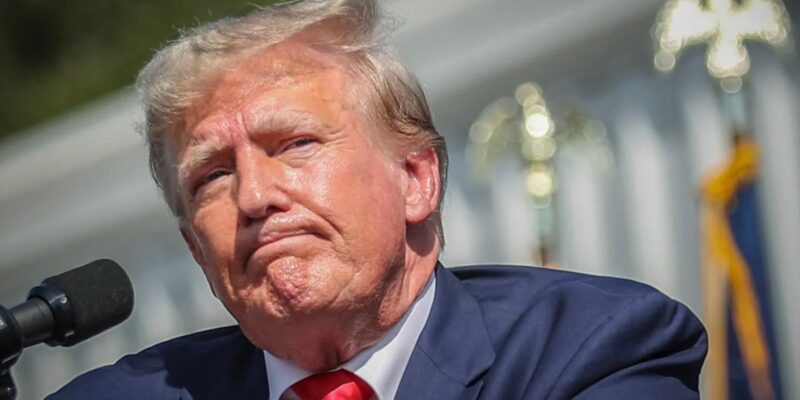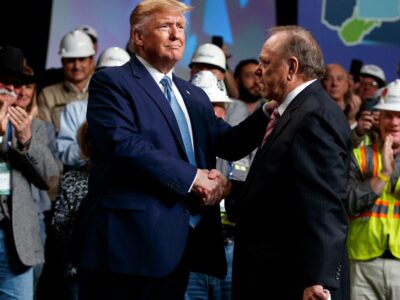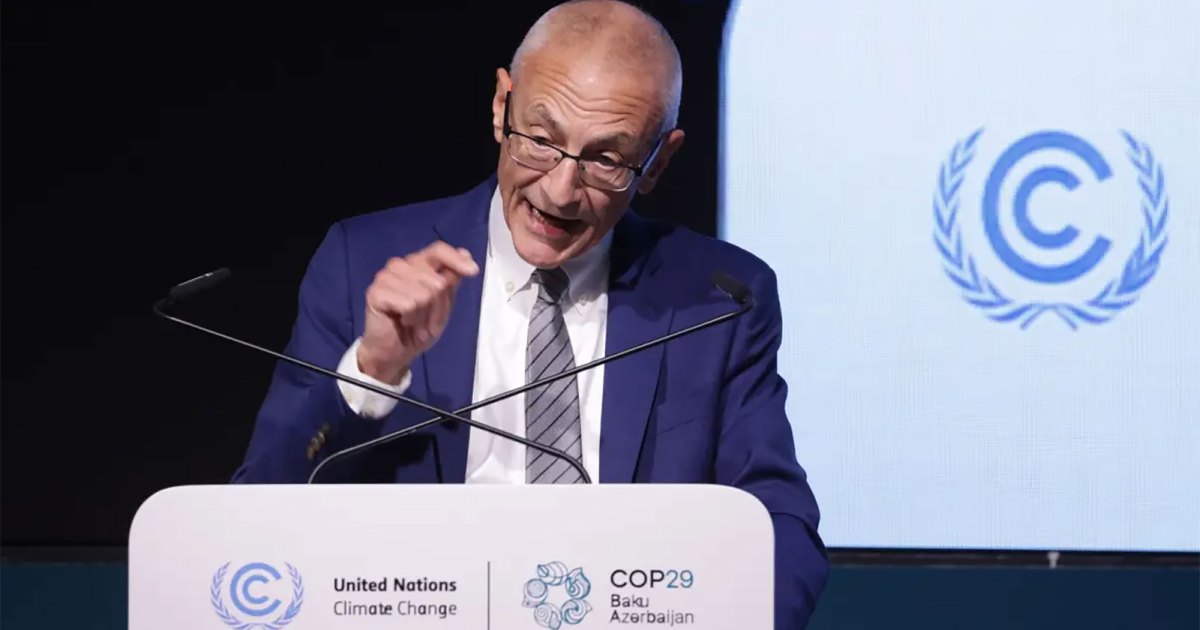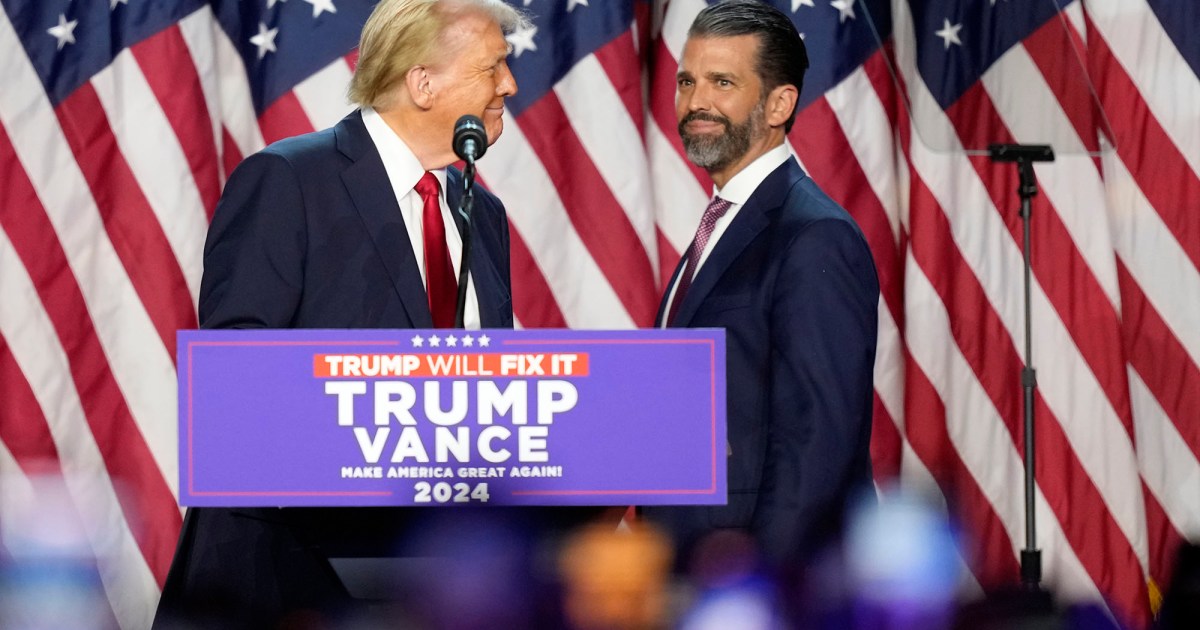
Donald Trump committed massive fraud in the state of New York and must shutter his businesses there, a judge ruled Tuesday afternoon. The ruling—if it stands, a massive blow to the former president’s business empire, essentially gutting it and potentially undermining all his finances—comes as part of a $250 million civil fraud lawsuit brought against him by New York Attorney General Letitia James. James has been battling Trump for several years, investigating claims that he manipulated the values of various properties in order to get better deals from banks and insurers. Trump and his attorneys have fought bitterly, but, as New York Supreme Court Judge Arthur Engoron noted in his ruling, have largely failed to present any defense.
A trial is still set to start early next month to deal with several other charges James has brought against Trump, mainly involving the falsification of business records. According to the lawsuit, Trump would routinely overvalue properties when offering them as collateral for bank loans and insurance coverage. In the run-up to the trial, Trump’s attorneys have offered several arguments, among them that James’ office has no standing to pursue the case, that there was no fraud because Trump never defaulted on a loan borrowed using an inflated valuation, that valuation is a flexible concept, and that the value of any property is in the eye of the beholder. After reviewing both sides’ evidence and arguments, Engoron said he didn’t need a trial to determine that Trump had committed fraud.
“The documents here clearly contain fraudulent valuation that the defendants used in businesses,” Engoron found. “Defendants respond that: the documents do not say what they say, that there is no such thing as objective value, and that essentially the court should not believe its own eyes.”
In a rambling deposition, Trump repeatedly claimed that his submissions to banks and insurance companies came with a disclaimer: essentially, that no one should take his valuations too seriously. That so-called “worthless disclaimer,” Trump claimed, absolved him of liability. He also said that people had offered him enormous sums of money for certain properties, apparently in an effort to prove that paper valuations by accountants and real estate analysts don’t mean very much. Engoron was not persuaded—at all.
“The ‘worthless disclaimer’ argument is worthless,” he wrote. “The defenses Donald Trump attempts to articulate in his sworn deposition are wholly without basis in law or fact.”
The fact that Trump didn’t default on his loans is irrelevant, Engoron wrote, agreeing with James’ office that fraudulent claims have to be policed, even if there was no harm to consumers. Property valuation methods, the judge said, are well-established and inflexible.
“It’s just not true that value is in the eye of the beholder, and [James’ office] establishes a discrepancy between $812 million and $2.2 billion,” Engoron noted. “Even in the world of high finance, this court cannot endorse a proposition that finds a misstatement of at least $812 million to be immaterial.”
Engoron was also not impressed with the claim that people—including, Trump hinted, the Saudi Arabian government or its state-backed LIV Golf tournament —would be willing to buy some of his properties for outlandish sums, which the judge said “may suggest influence buying more than savvy investing.”
Engoron used a large part of the ruling to excoriate Trump’s attorneys, who he said in the ruling were operating “in a fantasy world” and who, at the Attorney General’s request, he fined $7,500 apiece for repeatedly fielding the same incorrect arguments after Engoron had ruled them invalid.
“Defendants’ conduct in reiterating these frivolous arguments is egregious,” Engoron wrote. “We are at the point of intentional and blatant disregard of controlling authority and the law of the case.”
According to Engoron’s ruling, Trump’s businesses in New York—including at least the 40 Wall Street office building, a golf course in Westchester County, and a slew of other commercial properties—must be shuttered, and receivers identified within 10 days to manage their dissolution. The fate of other notable Trump properties, like Trump Tower, will likely be hashed out in the upcoming trial. It wasn’t immediately clear how that would play out. Chris Kise, an attorney on Trump’s defense team, provided a statement:
“Today’s outrageous decision is completely unhinged from the facts and governing law. The decision seeks to nationalize one of the most successful corporate empires in the United States and seize control of private property all while acknowledging there is zero evidence of any default, breach, late payment or any complaint of harm…While the full impact of the decision remains unclear, what is clear is that President Trump will seek all available appellate remedies to rectify this miscarriage of justice.”
On Truth Social, the social media app he owns, Trump complained about the ruling in messages that essentially repeated the arguments Engoron had dismissed, adding, “It is a great company that has been slandered and maligned by this politically motivated Witch Hunt. It is very unfair, and I call for help from the highest Courts in New York State, or the Federal System, to intercede. THIS IS NOT AMERICA!”
Update, September 26: This story has been updated to include a statement by Trump Organization attorney Chris Kise.















